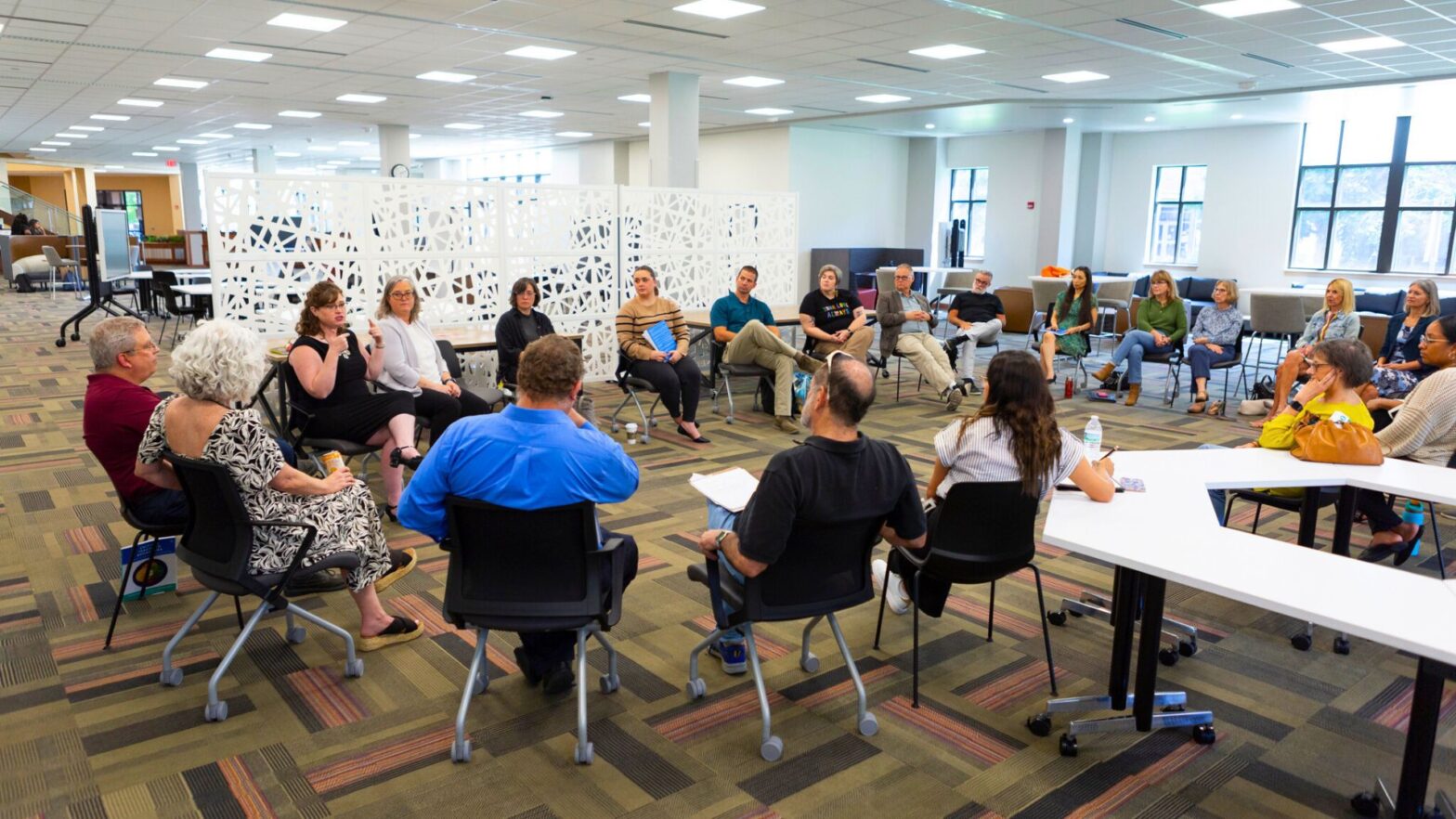Today’s professors face the challenge of preparing students for an ever-evolving career landscape — perhaps more than ever before.
At Newman University, the Center for Teaching and Learning (CTL)’s supports faculty in applying the Critical Teaching Behaviors (CTB) framework to their teaching through a peer observation community of practice. After visiting each other’s classrooms, faculty peer observers use the CTB framework to engage in reflective conversations about teaching and implement those strategies in the classroom.
Spearheaded by Marguerite Regan, Ph.D., director of teaching and learning, the work of the CTL has served as a helpful hub for Newman faculty members. On April 4, Regan will showcase Newman’s efforts in a co-presentation with Lauren Barbeau, author of “Critical Teaching Behaviors,” at the “Leading Institutional Change” American Association of Colleges and Universities Conference in Puerto Rico.
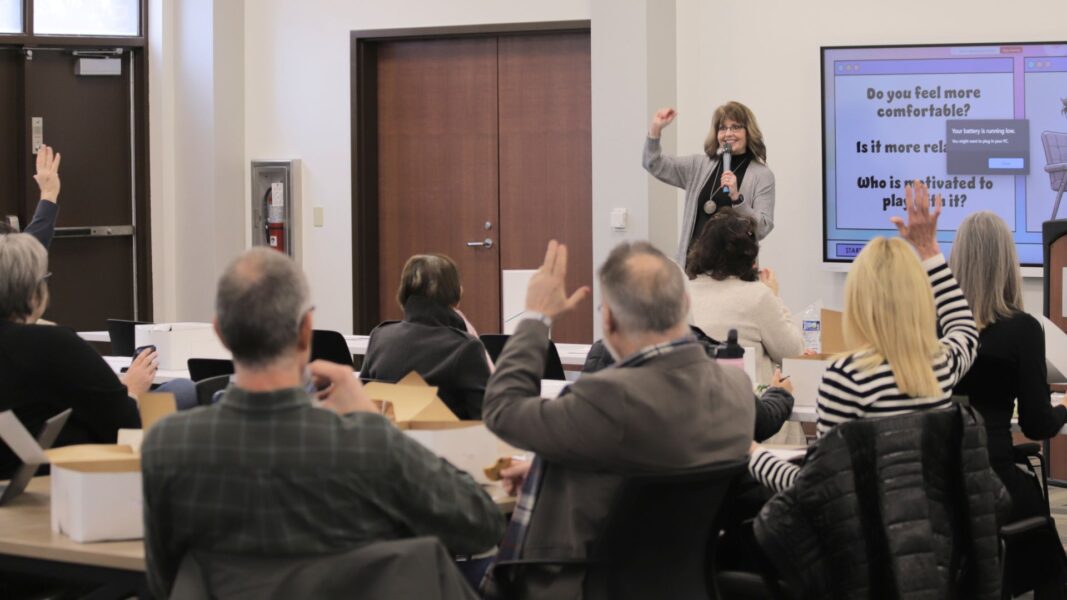
Improving teaching strategies
Angie McCoy, assistant dean and Master of Business Administration program director, describes the peer observation opportunities as “invaluable” to adapting her teaching philosophy.
In the fall, McCoy participated in a small group of peer evaluations for feedback to apply to her teaching practices.
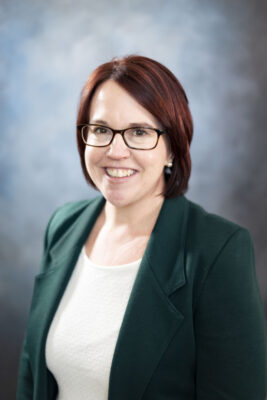
“It has been so nice to have somebody from outside my discipline watch my teaching style and give me good, honest feedback but through a very safe process,” McCoy said. “You don’t feel like you’re being evaluated. Instead, you feel more like they’re sharing their areas of expertise to help you improve your teaching ability.”
McCoy said the 16 to 18 hours she spent with CTL during the fall semester was “well worth” the investment.
On Nov. 15, McCoy was recognized with a Newman faculty excellence award — less than two years into her experience as a professor. Her nominators described her as empowering, supportive and inclusive, all thanks to her cross-disciplinary teaching and varied approaches.
“I never planned to become an educator, but looking back, it feels like my career path naturally led me here,” McCoy said. “Teaching and advising bring me a sense of fulfillment as I help guide students through their educational journey.”
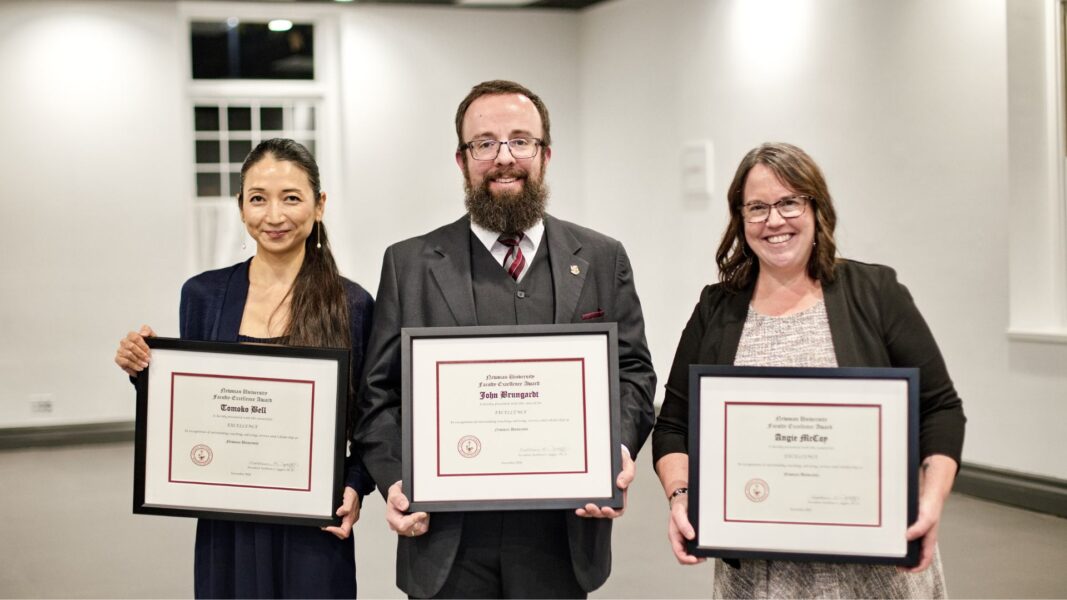
McCoy used recommendations from fellow Newman professors to design her spring courses and doesn’t plan to stop for future semesters. The self-reflective process also helped prepare her for faculty evaluations.
“The peer observation community of practice has been a little bit of time invested on my part, but the payoff has been huge,” McCoy said.
All for the students
For Director of the Respiratory Care Program Timothy Cho, the peer observation process has inspired more self-reflection and a deeper understanding of what it takes to be an effective teacher.
“I think a lot of us in the health professions are very comfortable at being subject matter experts, but we don’t really have a lot of formal training on pedagogy,” Cho said.
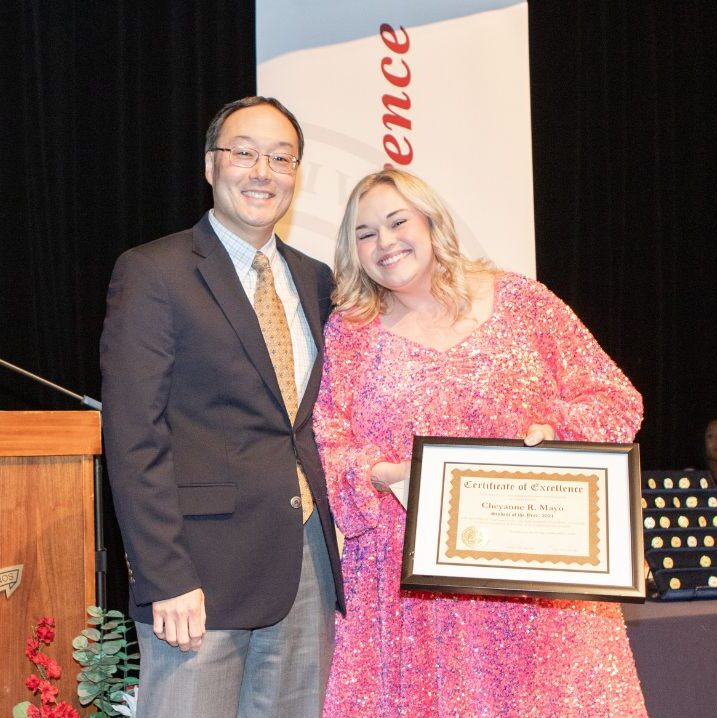
Cho was grateful to recognize some of the critical teaching behaviors and best practices he already lives out and identified areas with room for growth.
“That’s what I want to do. I want to put the best product out there for my students and this gave me an opportunity to become a more well-rounded teacher,” he said.
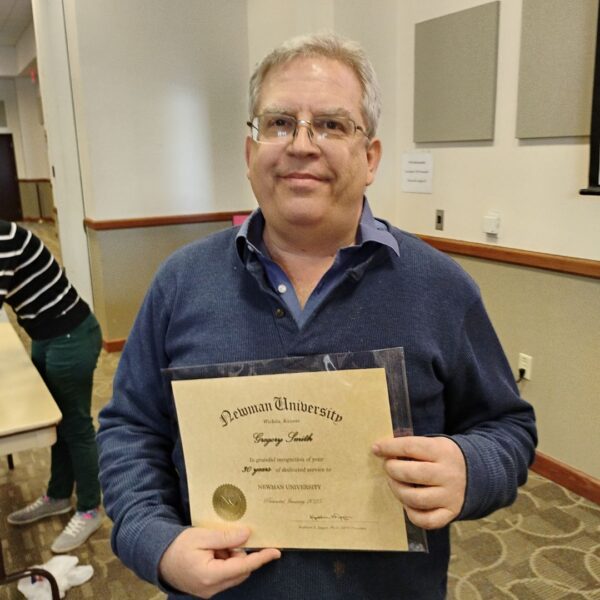
Professor of Psychology Greg Smith shared Cho’s sentiments, adding that the tangible outcome of supporting students to be successful is “well worth the effort.”
“Most of us are here because we love teaching,” Smith said. “So this time we are spending to improve ourselves as teachers fits close to my heart. It’s going to help me do better at some things I’m not doing well, it helps me respond to what students and other faculty are seeing and it will improve the overall learning experience for my students, which is what this is all about.”
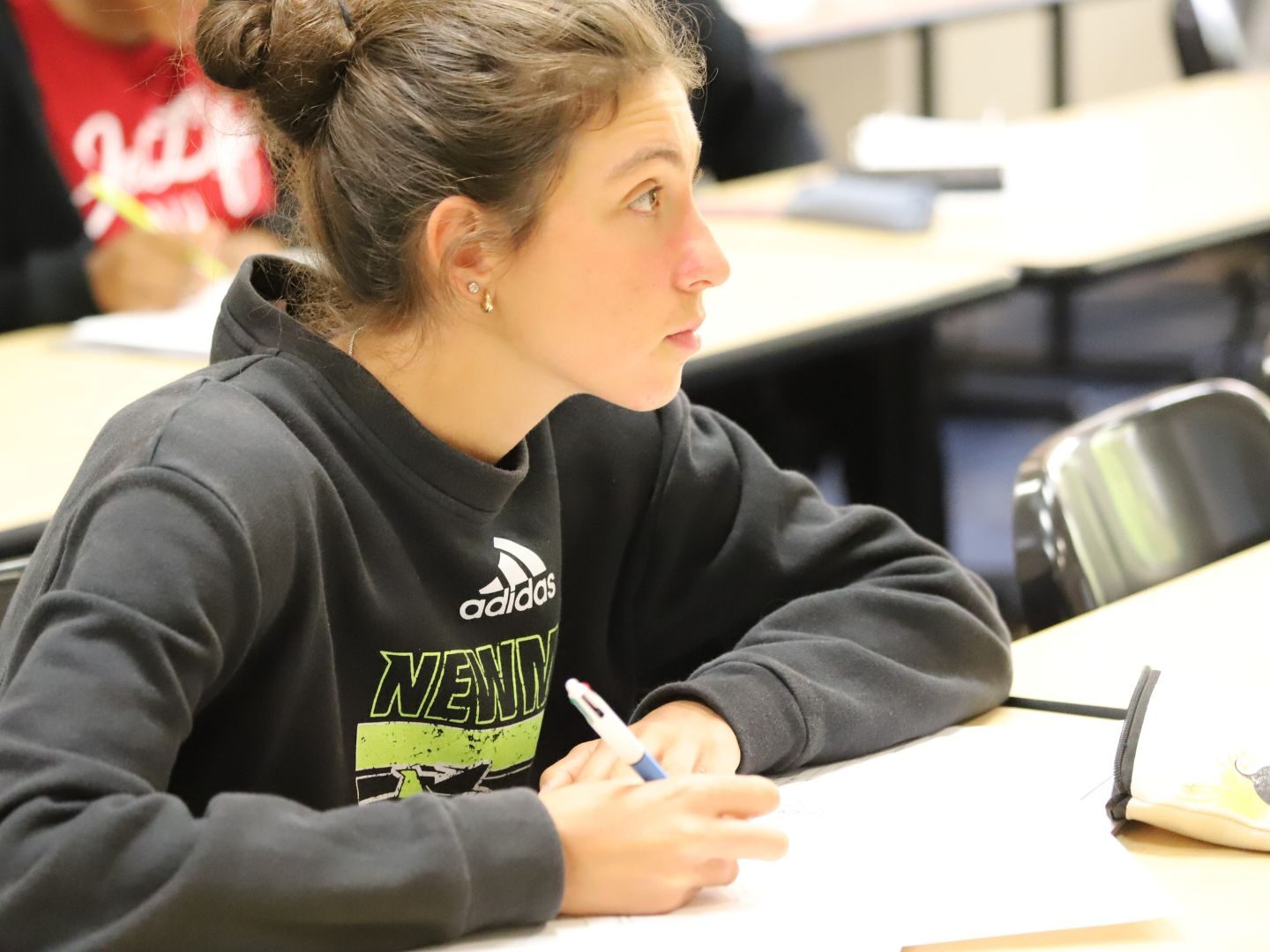
A celebration of teaching
Audrey Hane, professor of communication, said she used the peer observation community of practice framework to evaluate a class she has been teaching for nearly 30 years.
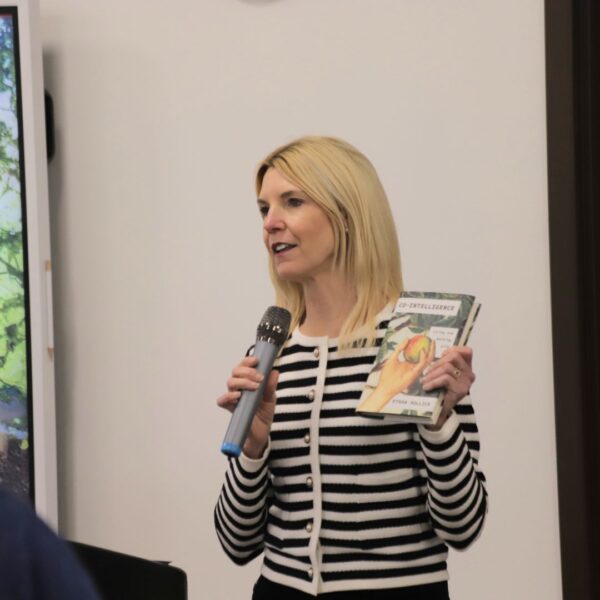
“I was able to dive into it and look at this class I’ve taught — probably hundreds of times — now with fresh eyes,” she said.
“In all the time I’ve been at Newman, this is the first time that there has been an intentional effort to focus on professional development around teaching,” Hane said. “I think this shows that the institution values teaching by providing the time and space to be thoughtful and reflective. Working with my peers in the Center for Teaching and Learning has been a joy and has energized me for my work.”
Hane likens the peer observation community of practice to “necessary self-care for professors.”
“There’s the saying that you have to put your oxygen mask on before you help others, and it makes me think, ‘What could be more important in our work than reflecting on our teaching and being more intentional about good teaching?’ For me, the foundation has to be a priority.”
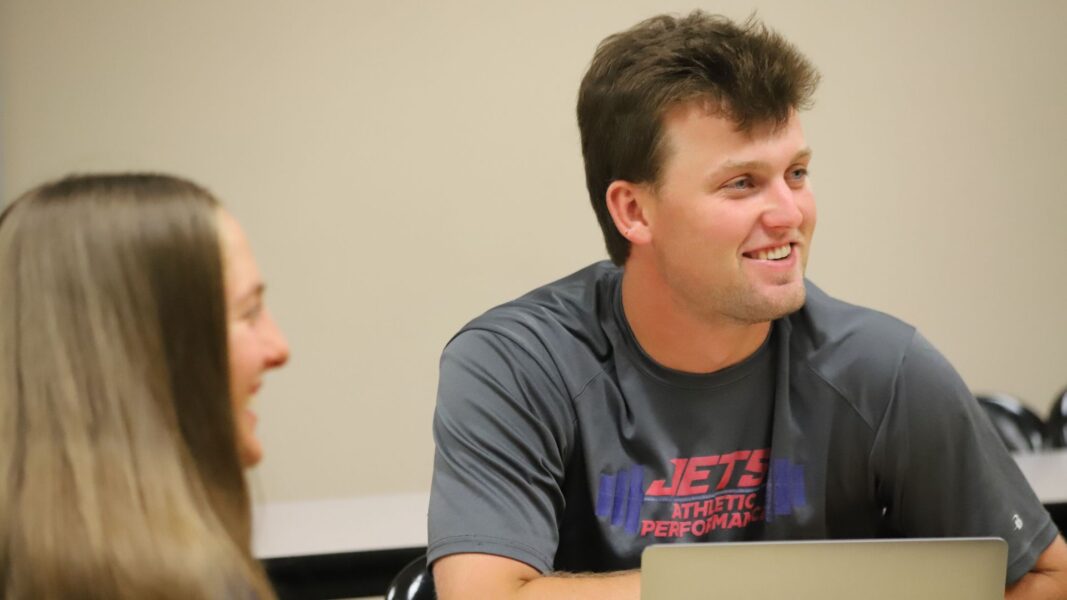
When it comes to Newman’s community of practice, Hane offered some warm advice to fellow Newman faculty members.
“Value yourself, value your profession. Value what you do, invest in yourself and invest in your students, and I can guarantee that you’ll reap many rewards,” she said.
Learn more about Newman’s Center for Teaching and Learning
Because the link between faculty growth and student success is strong, the Center for Teaching and Learning exists for the ultimate purpose of having a positive impact on student learning.
